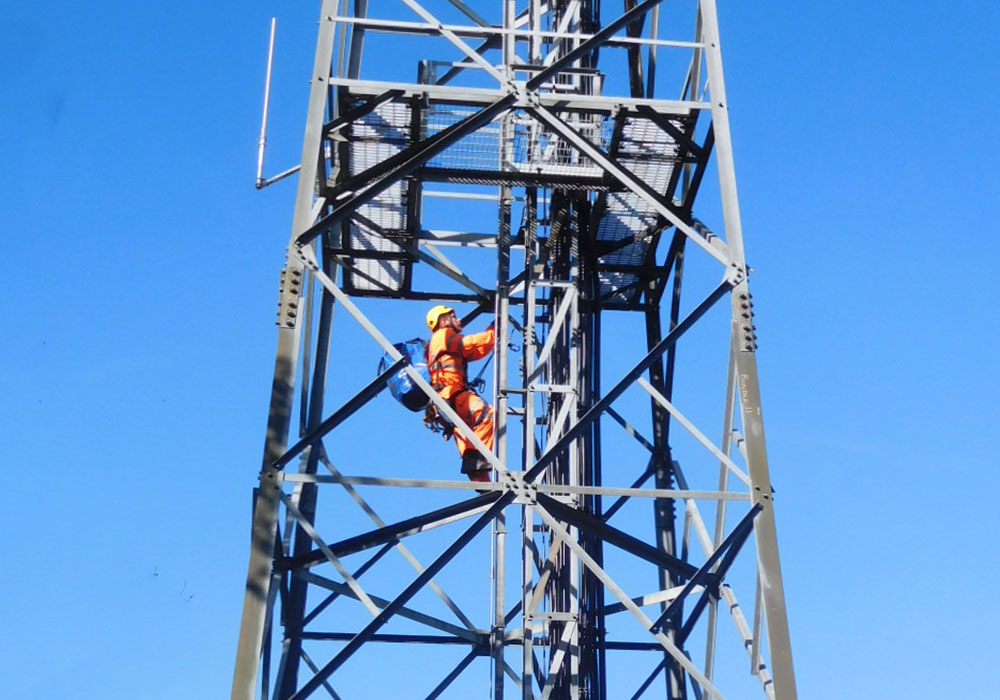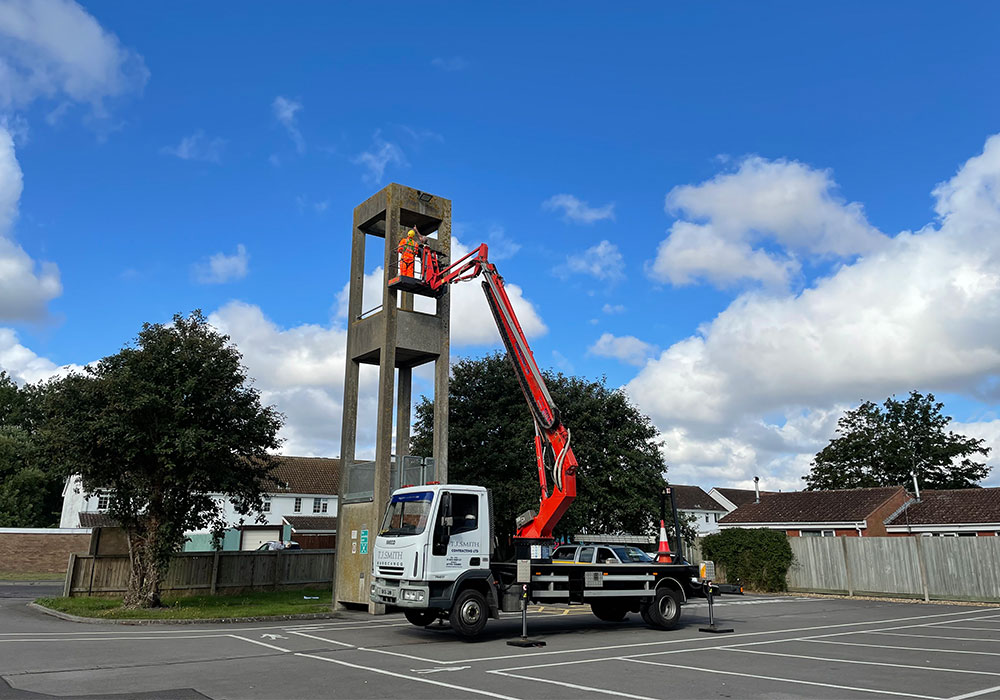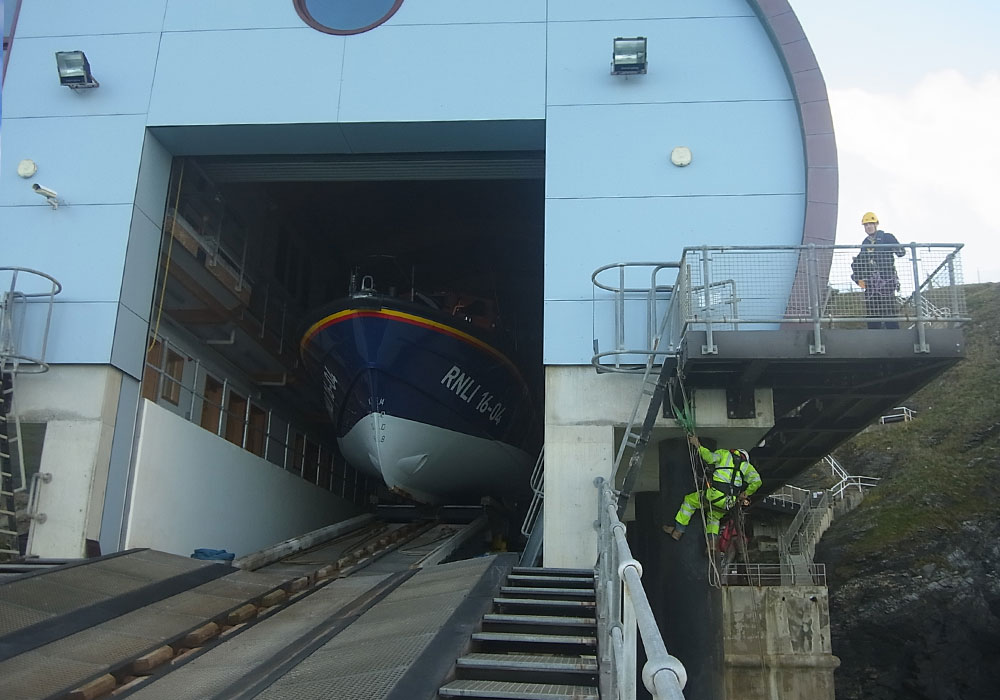
mundic assessment experts
At JGP, we provide a full range of Mundic Testing and Analysis services, including both structural inspections and laboratory-based assessments. Our Mundic services are conducted in accordance with the guidelines published by the Royal Institute of Chartered Surveyors (RICS).



Mundic concrete is a significant issue in many areas of Devon and Cornwall. This problem arose from the use of unstable aggregates from old mine waste tips, which became apparent in the 1980s. Certain minerals in the waste, primarily sulphides like iron pyrites, can oxidise, decompose, and expand, potentially leading to the disintegration of concrete and severe structural damage. “Mundic” is the Cornish word for iron pyrites, a common mineral in the region’s mining waste.
Concrete testing for Mundic, or “Mundic screening,” identifies potentially unstable aggregates and other concrete quality issues to assess the stability and structural integrity of the material. Following assessments, concrete is classified as follows:
(100% stable aggregate)
(contains stable Mundic aggregates, passing at either Stage Two or Stage Three)
Currently Sound (but contains potentially unstable aggregates)
Unsound (due to unstable aggregates)
Unsound (due to other non-Mundic causes)
The need for a Mundic survey often presents itself during the later stages of the mortgage application. But why is it required? Everything was going so well, your offer was accepted, the paperwork appeared to be going through, but now the valuing surveyor has requested a Mundic Test and everything has come to a sudden and depressing stop. But don’t worry, you shouldn’t be scared or panicked by this request. The Stage One Assessment is very straightforward and can be completed within 7 working days of your instruction (1.5 weeks). Here are some questions that we are commonly asked by both sellers and buyers.
Mundic is the Cornish word for the mineral pyrite (known by many as Fool’s Gold). The term Mundic has now become synonymous with aggregates containing sulphide minerals.
The pH of newly made concrete has a high alkalinity, and any sulphide minerals within the aggregates are generally stable. However, as concrete ages, it carbonates (reacts with the atmosphere) and its alkalinity reduces to neutral, causing the sulphide minerals to become unstable. The sulphide minerals oxidise (rust); for example, pyrite turns from iron sulphide to iron oxide, which is expansive (takes up more volume). The sulphur component then reacts with compounds within the cement, both weakening the cement and forming calcium sulphate crystals that precipitate within micro-voids and cracks, which are again expansive. The expansive reaction causes cracking, which allows more air and moisture into the concrete, exacerbating the concrete’s decay.
Properties within a certain age criterion, located in Cornwall or certain parts of Devon, will require a valid test report. The tests are requested to satisfy mortgage providers who will be lending capital against the property. Although not mandatory, it is also advisable that cash buyers request a test to ensure their investment is sound.
At present, the earliest Mundic concrete identified was in an engine house at a tin mine in Cornwall. It contained only a few concrete components and was constructed in 1890. Most properties at that time were constructed using more traditional methods such as local stone. Concrete was not commonly used until around 1915.
As a general rule of thumb, 1950 is taken as a rough cut-off date; however, there are exceptions for certain areas. It is not uncommon to test properties up until the 1960s, and for mortgage purposes, the final decision falls on the valuing surveyor acting on behalf of the buyer. The suggested date of 1950 is based on the following statement taken from the RICS guidance document: Prior to the 1950s, transportation of large quantities of material was difficult. Concrete blocks were often locally made by small companies or individual builders. Throughout the region, extensive heaps of mine waste were present. These spoil heaps became a common and readily available source of cheap or even free aggregates. Following the 1950s, the majority of concrete blocks were made in larger scale factories with quality control checks applied, which helped stop the use of such potentially unstable aggregates.
Unlike most Mundic Surveyors, JGP has its own in-house laboratory and petrographer. This means that we are in full control of all aspects and can provide very quick turnaround times from initial instruction to final reporting. Our Stage One express service takes 7 working days (1.5 weeks) from telephone confirmation to report issue. Subject to availability, even faster services can be arranged. For more information, call our office to speak to a surveyor. Furthermore, JGP’s assessments are conducted by qualified structural engineers or chartered technicians, not just building surveyors. When Mundic material is identified, the collaboration between our engineers and petrographers provides an invaluable resource to our clients where remediation works are suitable.
This depends on the Mundic classification and the extent of the material identified. If it has been discovered that the entire property has been formed from material containing Mundic aggregates, options are limited. To prevent further decomposition of the material, you must undertake general precautions at regular intervals to prevent any potential ingress of damp and water into the underlying concrete structure. If you are looking to sell your property, you should seek advice from a valuation surveyor regarding the effect on the open market value. If isolated areas of Mundic material have been identified, it may be necessary to undertake further investigation to identify the extent and understand why the variation is present. For example, a small extension could contain the Mundic material, or it could be present within the exposed sub-walls. Once the extent has been confirmed, it may be possible to implement a remediation plan. JGP’s engineers can specify and detail any required structural design, oversee the works, and provide suitable certification upon completion.
For reliable Mundic Testing and Analysis, trust JGP to assess the soundness of your concrete. Our services, conducted in line with RICS guidelines, include both structural inspections and laboratory-based assessments, all under one roof.
Contact us today to speak with one of our surveyors, book your Mundic test, or discuss how we can assist with any Mundic-related concerns. We’re here to help in whatever way we can.
